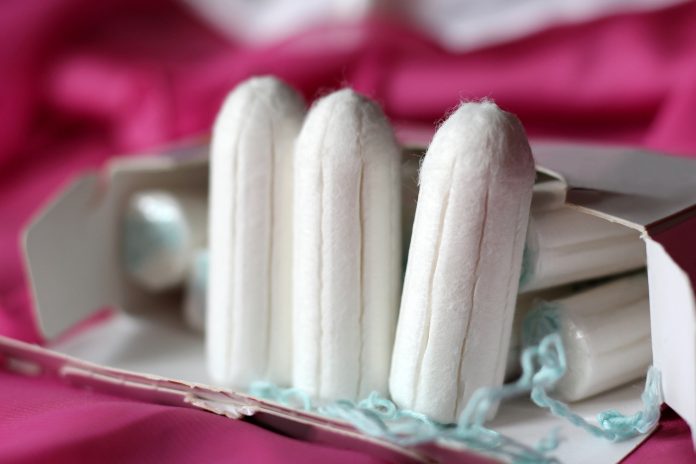Initial Washroom Hygiene explores why we need to keep talking about period poverty, even during the Coronavirus pandemic
You may recall early during the Coronavirus pandemic, toiletries were incredibly hard to come across. In fact, toilet paper manufacturers had to take the unusual step of discouraging people from buying their products so there was enough to go around.
While toilet paper is once again readily available on supermarket shelves, the same cannot be said for other sanitary products. A leading charity in the fight against period poverty Freedom4Girls has warned that women and girls are struggling to access period products during lockdown with demand for its services increasing fivefold in the past two months.
Additionally, a survey from the humanitarian organisation Plan International found that 73% of women reported restricted access to feminine hygiene products owing to shortages or disrupted supply chains. It also found that three in 10 girls in the UK aged between 14 and 21 struggled to afford feminine hygiene products during the lockdown, with more than half of those resorting to toilet paper as an alternative.
Tina Leslie, founder of Freedom4Girls says that Coronavirus has created a new cohort of women experiencing period poverty for the first time. She comments: “With people furloughed or struggling a little more as a result of the lockdown and pandemic, period poverty has increased dramatically, particularly in those aged from 18-50. With shortages on supermarket shelves and government advice to avoid public transport, many women have been unable to access period supplies during the lockdown period or are having to shop at smaller convenience stores where budget options may not be available.
“On top of this, many of the locations such as schools, drop-in centres, libraries and food banks that usually provide period products are closed – so there are a lot of women that are falling through the cracks,” Ms Leslie says.
How Initial is helping the fight against period poverty
Initial is proud to be working with Freedom4Girls to help create period dignity for women across the country. For each specially developed in-cubicle Period Poverty Vending Dispensers installed by Initial Washroom Hygiene, we donate £5 to Freedom4Girls as well as an additional donation of £1 for every box of sanitary refills ordered for these units.
Alongside our monetary donations, we are also helping to raise awareness of this issue, by educating on the importance of eradicating the negative stigma surrounding menstrual hygiene. Recent research conducted by Initial Washroom Hygiene confirmed the stigma still exists in the workplace, with a third (32%) of male office workers claiming it is unprofessional for women to talk about their period at work, while nearly half of women said they feel uncomfortable taking menstrual hygiene products out of their handbags or desks in front of colleagues.
Washroom best practice to promote period dignity
Providing all-female washroom cubicles with sanitary disposal units is fundamental to maintaining a hygienic and pleasant washroom environment. Disposal units with automatic or no-touch capabilities help to maintain hand hygiene levels at a time when this is crucial, and make disposing of used sanitary products quick and simple. This encourages users to dispose of waste in the most ecological way possible, rather than simply flushing bulky and potentially harmful waste down the toilet.
Businesses looking to actively promote best practice hygiene should consider providing easy access to complementary products on their premises – particularly as good hygiene practices will be essential to prevent cross-contamination. Ideally, a small dispenser should be installed within the toilet cubicle, providing the opportunity for women to dispense products hygienically, for free and in private. Housed in a discrete, compact unit and typically located alongside the toilet roll holder, female washroom users who cannot afford them or who have simply been caught unaware are thereby provided with easy and free access to sanitary products.
Final thoughts
At Initial Washroom Hygiene, we believe it is vital to help eradicate the stigma around menstrual hygiene and provide women with a dignified washroom experience. This means ensuring that women have access to sanitary products as well as an option for their hygienic disposal.
If you want to help tackle this issue while many offices and businesses are closed, then you may consider a sanitary product donation to your local food bank or supermarket, or a donation to a charity such as Freedom4Girls, are the best ways to provide assistance and help women and girls across the UK achieve period dignity.











